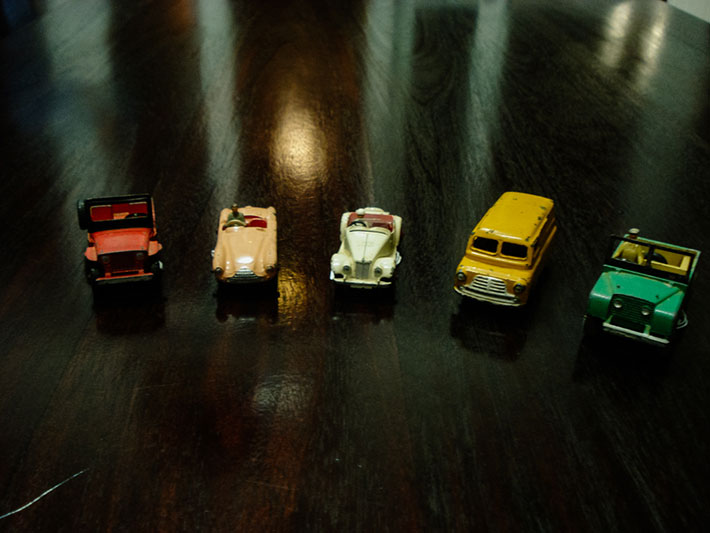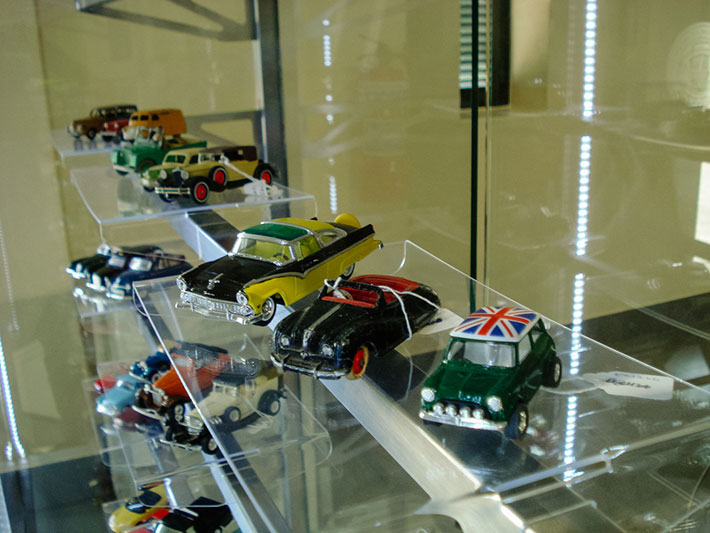
29 Apr Memorabilia: Dinky Toys, Corgi Toys, Matchbox Toys and Hot Wheels
FMM assistant curator Cheslynne Ruiters scales down to look at the brief history of Dinky Toys, Corgi Toys, Matchbox Toys and Hot Wheels…
Small in design but big in imagination, these metal vehicles were big in the 1950s and 1960s. Their popularity has endured not only because of the wonderful craftsmanship of the toys themselves, but also because of the unforgettable memories they have created for so many generations. Dinky Toys was the brand name for a range of die-cast zamac zinc alloy miniature vehicles produced by Meccano Ltd, which was established by Frank Hornby in 1908 to make metal construction sets.
In the early 1930s, Meccano had made many types of tin plate and other metal cars, such as Morgan and BSA three-wheelers, mostly in kit form. The first cars came on the market in December 1933 as Meccano Dinky Toys, but they were not called Dinky Toys until April 1934. In 1935 the name Meccano was dropped and the marque became Dinky Toys until 1971.
A Dinky Toys craze hit the United Kingdom in the early-1950s and children and adults of all ages began building collections. Most of the models were in a scale of approximately 1:48 but ranged from 1:8 to 1:2000, which blended in with O-scale railway sets. Many buses and lorries (trucks) were scaled down further so that they were around 4 inches long.
In 1956, Mettoy started a rival line of models under the Corgi brand name. Corgi Toys all had windows, and then started having features such as plastic interiors and suspensions. The competition meant that Dinky Toys had to progress quickly with new ideas, so they introduced opening doors and boots, detailed engines, finger-tip steering, etc. In the mid-1960s, Corgi led the way with cars tied to TV shows and films, notably James Bond’s Aston Martin DB5. Competition from Matchbox, who made a popular line of antique cars, forced Dinky to try this idea too, but it was abandoned after a few models.
Then a new competitor entered the model car market in the UK, Hot Wheels by US toy maker Mattel. The low-friction axles gave them play value that Dinky and Corgi could not match. Dinky responded with its own Speedwheels. There were still some wonderful models being built at this time, with all doors opening, high quality metallic paint, and sparkling headlights, but they were expensive. French Dinky Toys stopped producing in 1972 while English Dinky limped through the 1970s before closing. The Dinky name was a valuable one and changed hands many times before ending up as part of Matchbox International.




